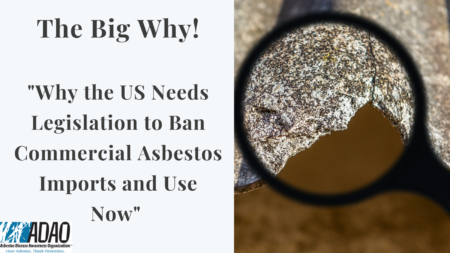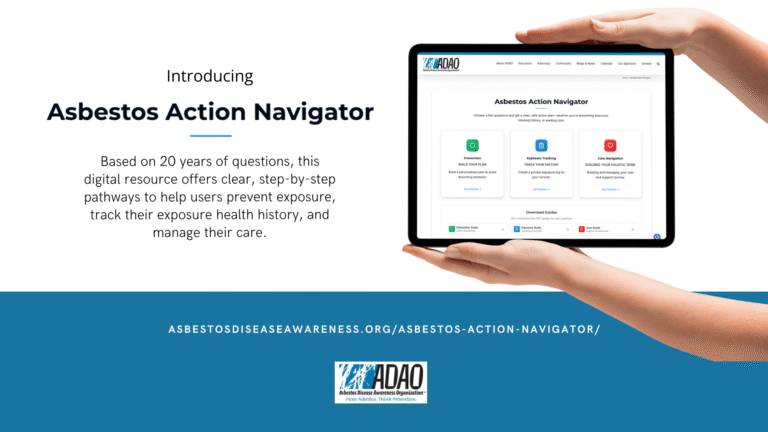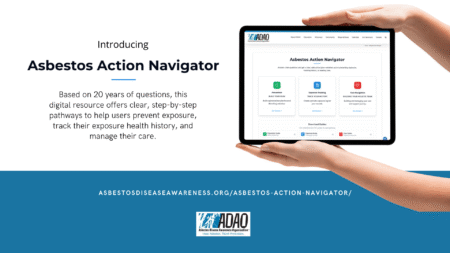Asbestos is responsible for the deaths of 40,000 Americans each year. Despite this, asbestos continues to be legally imported and used in the United States, a fact that surprises many people who wrongly believe asbestos was banned years ago. It’s long past time to ban asbestos once and for all and put public health ahead of corporate profits.
The Alan Reinstein Ban Asbestos Now (ARBAN) Act (S.1069 and H.R.2402) would prohibit all asbestos fibers from being imported or used in the United States. And yet, the bill, which was introduced in 2023, has yet to be given a proper hearing or a vote.
Why? When we speak with members of Congress and ask them to co-sponsor and support the legislation, they often point to EPA’s ongoing regulatory process. In fact, several regulations related to asbestos are in progress at the EPA, but none are as comprehensive as the proposed legislation.
One regulation, known as EPA’s Chrysotile Asbestos Final Rule Part 1, restricts only one of six types of asbestos fibers. Its restrictions only apply under six specific conditions of use, leaving the door open to other kinds of asbestos and other uses in the future. Quite simply, it falls short of the comprehensive ban Americans need and deserve to protect them from the dangers of asbestos.
While we appreciate all that the EPA has done to help protect Americans from asbestos, we know that the only way to truly end the use of asbestos and prevent asbestos exposure fully is through legislation. EPA’s regulations are simply not strong enough, subject to messy and prolonged legal challenges, and have gaping holes in them that leave the door open to future asbestos imports and use. We have fought for too long to settle for such weak and incomplete measures, especially when change is so near to the horizon.
Right now, a single corporation, OxyChem, remains the sole importer of raw chrysotile asbestos into the country. Their competitors, Olin and Westlake, have already begun the transition towards asbestos-free technology. In fact, Olin’s CEO has publicly supported ARBAN. This demonstrates that an asbestos-free future isn’t just possible, it can be profitable for those corporations and safeguard public health at the same time.
We will continue to call on Congress, regulatory agencies, and public health advocates to unite to pass ARBAN into law. You can join our call by sending your letter to Congress. It takes just a few minutes to do with ADAO’s online platform.
Join us and help make an asbestos-free future possible.
Linda Reinstein



